[Note: I recognize that there are folks who will disagree with the conclusions of this post and perhaps even assume that I have some ax to grind in my writing of it. Nothing could be further from the truth. I read the book and have written my conclusions. Those conclusions are not necessarily flattering. But even the editor of the book, who you will see was quite fond of Wesley, at least intellectually and academically, made note in the book that modern-day Methodists ought not be judged on the basis of the man who is credited with the founding of this stream of Protestantism. If you hold some particular fondness for John Wesley, read the book yourself and see if you find me to be too far off base. But read it objectively.]
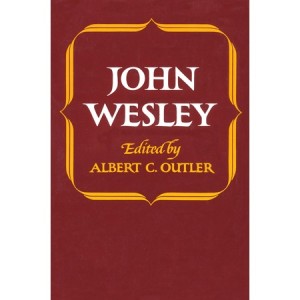 John Wesley, (copyright 1964) edited by Albert C. Outler (1908-1989), is one of the volumes from the Library of Protestant Thought from Oxford University Press.
John Wesley, (copyright 1964) edited by Albert C. Outler (1908-1989), is one of the volumes from the Library of Protestant Thought from Oxford University Press.
To my surprise, I have enjoyed skipping around through this book and reading sections from it. The structure of the book allows for this approach, as it is a compilation of Wesley’s sermons, correspondence, and essays rather than a biography of Wesley or a history of his ministry. Albert Outler, was regarded as a serious Wesleyan scholar. He assembled a variety of these types of documents mentioned above, and wrote excellent introductory comments and provided numerous helpful footnotes and references to Wesley’s writings.
My enjoyment in reading this book was partly related to my acquiring information about one of the world’s better recognized theologians (although one who held doctrinal positions that I disagree with) and partly because of what I found to be, shall I say, unusual things about Wesley’s mind, his style and apparently his approach to theology. The word that I would use to describe Wesley would be eccentric. That characterization is certainly not unique to Wesley, and I concede that many might describe me using the same word. But some of his eccentricities are curiously over-the-top.
The section of the book that I started with was one that Outler titled “Theologies in Conflict.” Chapter IV of this section is called “The Struggle With Calvinists.” (It only made sense for me to start here.) “The Struggle” contains two essays that Wesley wrote and published; the first in 1752, the other in 1775. Both dealt with his rejection of the doctrine of unconditional election, or predestination as Wesley usually referred to it. The first of these two essays, Wesley titled “Predesitination Calmly Considered.” I could not help but find the irony in that title because in reading the essay I felt like Wesley’s writing displayed neither calmness nor factual consideration.
Here are a few of my observations. I hope that anyone who reads this will believe that these are not intended to be disrespectful of Wesley. Clearly he was a brilliant man and his dedication to his understanding of the scriptures is beyond question. Instead, the comments below are simply the impressions that I was left with from reading the very words of the man himself.
- Instead of drawing comparisons between historic Calvinism and Wesley’s preferred Arminianism, he latches on to what would more accurately be described as Hyper-Calvinism. This is the strange starting point for his rebuttals, which at times were pretty cranky.
- Whereas historic Reformed theology, as I understand it, has never uniformly embraced supralapsarianism, (aka double predestination) that is the exact assumption that Wesley makes with respect to the meaning of unconditional election. He contends that all Calvinists must necessarily believe in unconditional reprobation, if they (we/I) believe in unconditional election. In Wesley’s words, “unconditional election cannot appear without the cloven foot of reprobation.” In making this argument, he seems to overlook the teaching of Genesis 3 and elsewhere in scripture pointing to the doctrine of the natural depravity of mankind, which, as I understand it, is universally held in orthodox Christianity. It would appear that on one hand he rejects the imputed sin of Adam (compounded by man’s personal sin), while at the same time receiving the imputed righteousness of Christ, for ALL mankind, mind you. Oops, there is another area of dispute with the Calvinists he did not address…Limited Atonement.
- There is comparatively little in the way of calm discussion in these essays. Snarky and sarcastic at times, Wesley seems to get wound up the further he goes with his writings. An apologist for Wesley would probably dismiss his tone as being passionate. But one would have to be completely oblivious to the tone that was present in his writing to conclude that his argumentation was “calm.” His style would be more accurately described as polemic.
- As you read his essay, you can see that he is constructing a dialogue between a Calvinist and himself But, the Calvinist is imaginary, and Wesley is playing both roles in this drama. In so doing, he sets up all sorts of overstated straw men arguments (that generally have little to no basis in historic Reformed theology) and then knocks them down. If this were parody it would be funny. But, these were really Wesley’s writings. The image I have is of an old man sitting on a bench rocking back and forth talking to himself. But in this case, not just talking, answering his own questions, out loud.
Thanks to Albert Outler and his comments preceding each essay, as well as his excellent footnotes, we are given a peek into what I will call the psyche of Wesley.
- There are several places in the second essay of this chapter, self-titled by Wesley as “Thoughts upon Necessity” where he identifies some particular theologian who he disagrees with and then quotes them. One in particular was Jonathan Edwards. Wesley indents the sections of text that are the “quotations” and then subsequently disputes whatever has been said. Outler, however, sets the record straight with his footnotes. It turns out that these are not, in fact, direct quotes of Edwards and others, just a “digest” or even a “rough digest” as Outler calls them. I suspect a student in a modern-day seminary would be censured or even expelled for taking such liberties in quoting sources, especially if they were represented as direct quotes and then used as a part of a systematic rejection thereof. I have to admit that I was simultaneously amused and alarmed by what had been revealed about Wesley.
- In yet another example, similar in nature, Wesley cites a section of the Westminster Confession, in order to refute it. But Outler notes that it is “a garbled version” of the Confession. This, and the example above, have left me wondering if this apparent, shall I say, defect, was typical of Wesley, or if these were some rare exceptions that happened to be concentrated in one chapter, in one book.
- Outler also notes, in his preface, that Wesley was so well versed in scripture that it was often difficult when reading him to know if his references to the word of God and his citations of it were direct quotations of an authentic translation or something else. “The line between an obvious echo of Scripture and a definite quotation is often blurred” is the way Outler states it. Does this mean that Wesley was prone to being a little loose with his quoting of scripture, even in his writing, when you might assume he could check his scriptural references?
- Furthermore, Outler noted that Wesley was so well versed in the original languages, that he wrote his own translation of scripture AND quoted from it. While on one hand, Wesley can and should be admired for his ability to translate the word of God from Hebrew and Greek, I have to say, for me, any translation of God’s word that has the benefit of a single human editor is something to be questioned. Pick up a reliable modern, essentially literal translation, and there will have been a team of Biblical scholars working together to critically assemble the translated word of God. This approach eliminates the potential of a single editor bringing his own doctrinal bias into the work product. To suggest that Bible translation was not done by “editorial boards” during the time of Wesley is refuted by the fact that the Geneva Bible was translated by just such a board, and its first edition was in 1599.
- That said, I was somewhat astonished that Wesley used comparatively little in the way of scripture to support his disagreement with Calvinism. While simultaneously challenging his imaginary Calvinist sparring partner in the essay to provide scriptural support for “their” Reformed point of view, Wesley most often provided none in support of his contentions, as if they were to simply be accepted out of hand.
Not a book I would recommend to the casual reader, it is certainly a good one at providing a peek under Wesley’s “hood.” Kudos to the editor, Albert Outler, who I gather was quite an admirer of John Wesley. He referred to his interest in Wesley as “a rather tedious menage a trois” between Wesley, himself, and his wife. (Eeeww! I think I would have steered clear of that analogy.) In spite of his obvious affection for the man and his theological legacy, Outler did a wonderful job of allowing Wesley, himself, to reveal his peculiarities, idiosyncracies, and eccentricities.



 Posted by Chuck
Posted by Chuck 
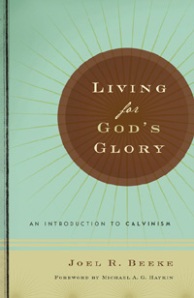

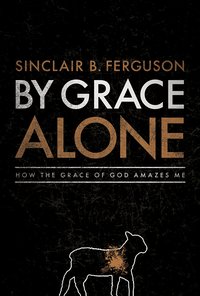
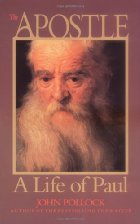

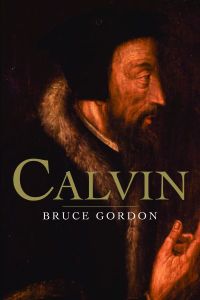


You must be logged in to post a comment.